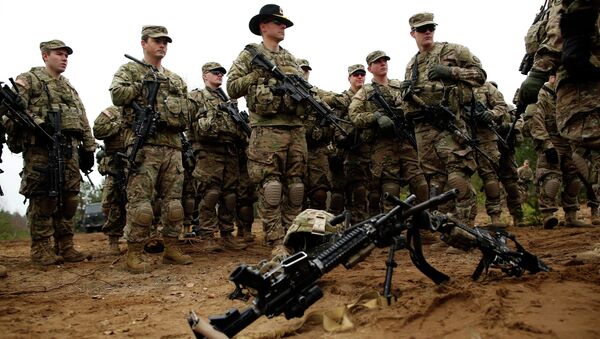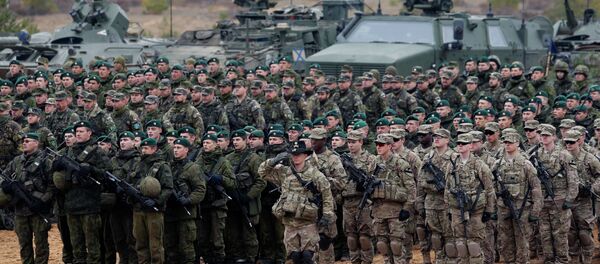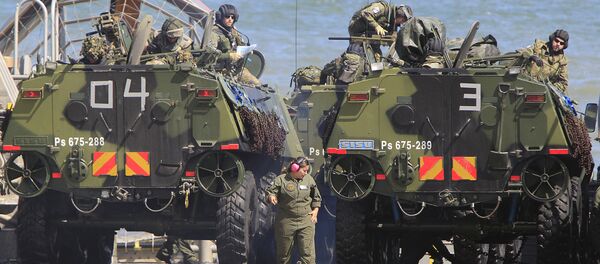NATO’s decision to deploy "four robust multinational battalions" to serve in Lithuania, Latvia, Estonia, and Poland has caused concern among military experts, fearing that the provocative move will increase tensions between the alliance and Russia.
Officials have attempted to alleviate these concerns by insisting that these troops are rotational and do not technically constitute a permanent presence.
But in a new report for the Atlantic Council, former US ambassador to NATO Nicholas Burns and Gen. James Jones, former supreme allied commander for Europe, have argued that even this small concession should be eliminated.
"NATO leaders should agree at their NATO Summit in July on an ambitious set of measures to deter Russia, stabilize threatened allies and partners to NATO’s east and south, and strengthen the military capacity of the Alliance in the coming year," the report reads.
This would include air, ground, and sea forces.
"Deploying four rotational battalions to the Baltic states and Poland…started important momentum on this front, but permanent basing and the development of additional infrastructure will be integral for NATO’s long-term posture in the east."
Moscow has repeatedly condemned NATO’s eastward expansion, pointing out that the permanent stationing of troops violates a 1997 treaty which stated that the alliance would not mass "substantial combat forces" in Europe.
Regardless, the report argues that "NATO allies must continue to hold the line against Russian aggression until a new generation of Russians agree to live in peace with its neighbors in central and Eastern Europe."
Russian President Vladimir Putin commented on the NATO expansion while addressing the State Duma on Wednesday.
"We will be forced to respond in the same way," he said, but added that Moscow is open to dialogue.
"It is necessary to create a non-aligned, equal-for-all-states system of collective security. Russia is ready to discuss this important issue and has repeatedly declared its readiness to engage in dialogue."





